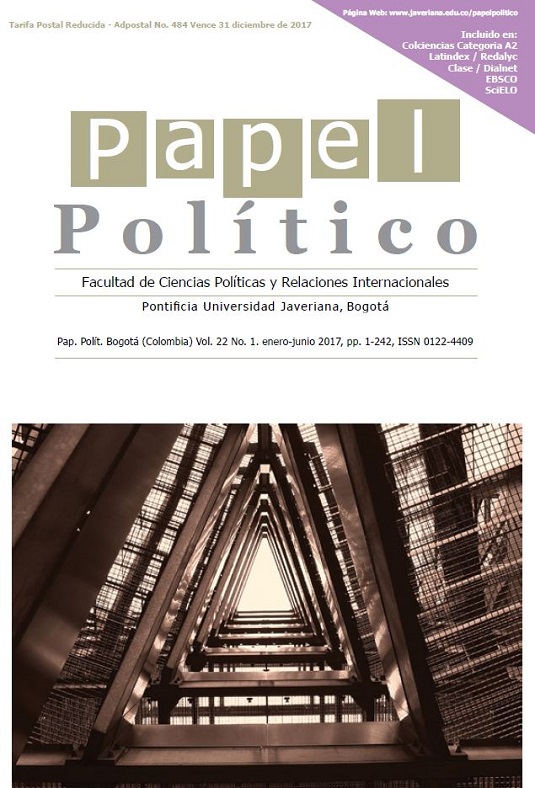Abstract
El Perú vivió un conflicto armado interno entre 1980 y 2000. Se calcula que esta etapa produjo alrededor de seiscientos mil desplazamientos internos; sin embargo, es también un tema relegado en el conjunto de prioridades de la agenda posconflicto peruana. Este artículo ofrece una explicación para tal paradoja. Se identifican seis factores que explican el relegamiento del desplazamiento en la agenda posconflicto: 1) menores probabilidades de identificarse con la afectación de desplazamiento que con afectaciones caracterizadas por ataques directos contra la integridad física; 2) un marco de sentido en el cual la idea de “víctima” (del conflicto armado) no incluye la figura del desplazado; 3) la naturaleza del concepto de desplazamiento, cuyos elementos definitorios destacan el contexto en el que este ocurre antes que relacionar a un agresor con una víctima; 4) la necesidad de un discurso experto sobre el desplazamiento como condición para activar procesos de identificación con esta categoría; 5) la historia de movilidad interregional previa al desplazamiento, que resta especificidad a esta experiencia; y 6) el tratamiento que hace la Comisión de la Verdad y Reconciliación (CVR) sobre el desplazamiento. Esta argumentación ofrece dos aportes: 1) iniciar una discusión sobre la manera en que distintas afectaciones se relacionan y 2) mostrar límites de la agenda posconflicto poco explorados en la academia peruana.
This journal is registered under a Creative Commons Attribution 4.0 International Public License. Thus, this work may be reproduced, distributed, and publicly shared in digital format, as long as the names of the authors and Pontificia Universidad Javeriana are acknowledged. Others are allowed to quote, adapt, transform, auto-archive, republish, and create based on this material, for any purpose (even commercial ones), provided the authorship is duly acknowledged, a link to the original work is provided, and it is specified if changes have been made. Pontificia Universidad Javeriana does not hold the rights of published works and the authors are solely responsible for the contents of their works; they keep the moral, intellectual, privacy, and publicity rights.
Approving the intervention of the work (review, copy-editing, translation, layout) and the following outreach, are granted through an use license and not through an assignment of rights. This means the journal and Pontificia Universidad Javeriana cannot be held responsible for any ethical malpractice by the authors. As a consequence of the protection granted by the use license, the journal is not required to publish recantations or modify information already published, unless the errata stems from the editorial management process. Publishing contents in this journal does not generate royalties for contributors.



